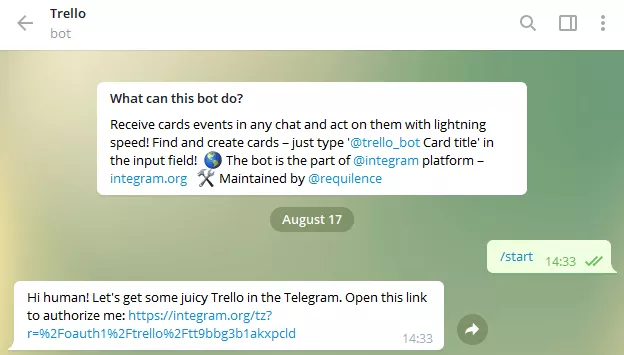How to Get Markdown to Notion: Complete Guide and Fixes
When processing Markdown documents, manual proofreading can be time-consuming.
GoInsight.ai streamlines this process by allowing you to set translation and proofreading steps directly in the workflow.

Markdown is a universal language for plain text documents, used widely by developers and content creators everywhere – from GitHub to blogging platforms. When trying to fit Markdown into your workflow in Notion, you might encounter formatting issues. This guide covers everything you need to know about using Markdown in Notion.
Part 1: Can You Use Markdown in Notion?
Yes, Notion allows users to import .md or Markdown files through several methods, though with some limitations. Additionally, it has a built-in Markdown preview that shows Markdown text formatting in real time.
Notion Markdown Support
1. Fully Supported
Notion fully supports the below Markdown features:
- Basic text formatting such as bold, italic, strikethrough, etc.
- Headings (H1-H3)
- Simple lists like bullets and numbers
- Links and basic embeds
- Images
2. Partially supported
- Code blocks
- Mathematical equations, which need special handling
3. Doesn’t Support
- Tables
- Complex nested lists
- Certain HTML tags
- Advanced Markdown extensions
Part 2: How to Convert Markdown to Notion
Let us provide detailed instructions for importing Markdown to Notion:
Method 1: Direct Copy-Paste Approach
The simplest way to use Markdown in Notion is by pasting Markdown text in Notion. It is preferable to use quick, small Markdown snippets in Notion.
Here are the steps to proceed:
Step 1: Open your Markdown file in any Markdown editor like Typora or Obsidian.
Step 2: Now, copy the rendered preview, not the raw content.
Step 3: Paste it into the Notion base page. Notion will auto-convert Markdown to its native formatting.

(Important: Notion parses basic formatting, including headers, lists, bold/italic, links, and inline code. However, complex elements such as footnotes, nested tables, LaTeX, etc., are stripped or flattened. Generally, code blocks may be converted to plain text or inline code unless you reformat them.
Method 2: Import Markdown into Notion
Notion has a built-in option to directly import the .md files from your device. This option offers a quick way to migrate docs, blog drafts, or notes from Markdown-based systems into Notion.
Here's how:
Step 1: Open Notion and head to the workspace or page where you want the content.
Step 2: Click "Import" from the sidebar menu and choose "Text & Markdown".
Step 3: Browse and upload your .md file.
Step 4: Notion will convert the file into a formatted page.

Important: Note that it creates one Notion page per .md file. It preserves most of the formatting, but may struggle with complex tables, LaTeX math, or custom HTML. Moreover, the image links must be hosted online to render correctly.
Method 3: HTML Intermediate Conversion
It is a two-step solution that involves converting Markdown to HTML first, then pasting the HTML into Notion. Changing .md to HTML is necessary as Notion doesn't allow direct HTML imports or HTML file uploads.
Here’s how to use Markdown in Notion after converting it into HTML:
Step 1: The first step is to convert Markdown to HTML. Use Pandoc or an online tool like Markdown to HTML to proceed.
(For Pandoc, the basic command line for .md to HTML conversion is:
pandoc input.md -o output.html)
Step 2: Copy all the content of the generated .html file.
Step 3: Now, open Notion and create a new page. Paste the copied HTML directly into the body of the page.
Step 4: Finally, review the formatting. Notion will convert many common HTML tags like <h1>, <p>, <ul>, <table>, and <code> into native Notion blocks.
(Important: As Notion uses its own formatting engine, Inline CSS styles are not respected. It will parse tables and nested lists, but strips unsupported HTML like <script> and <iframe>. Also, you need hosted URLs for images as local paths won’t work.)
Method 4: Using Notion API for Markdown Import
If you want bulk import or automation of Markdown files from documentation sites or GitHub repos directly into Notion, use Notion API. It allows developers to create and update pages inside Notion. Note that Notion API doesn’t natively accept .md files, but Markdown content can be parsed and converted into Notion blocks using libraries or custom code.
The detailed instructions are below:
Step 1: Go to Notion Integrations, create a new integration, and copy the API key.
Step 2: Click Share > Add Integration, and share the Notion page/database with your integration.
Step 3: Now, use a Markdown to Block converter, like:
notion-py (legacy, unofficial)
Note: You can write your own script using notion-sdk-js or Python’s requests.
Step 4: Here’s the example workflow by JavaScript:
const { Client } = require("@notionhq/client");
const mdToBlocks = require("markdown-to-notion-blocks");
const notion = new Client({ auth: process.env.NOTION_TOKEN });
const blocks = mdToBlocks("# My Header\n\nSome text\n\n- List item");
await notion.pages.create({
parent: { database_id: "your_database_id" },
properties: {
Title: {
title: [{ text: { content: "Imported Markdown" } }]
}
},
children: blocks
});
Step 5: Finally, automate the process for Multiple Files
Important: This method is best for automating structured Markdown-to-Notion workflows. It offers maximum flexibility, including custom formatting, metadata, and tags. However, the user must have a deep understanding of JavaScript (or Python) coding.
Method 5: Using Third-Party Tools like md2Notion
md2Notion is a Python-based open-source command-line tool that converts a .md file into a structured Notion page. It works by interacting with the Notion API and parsing Markdown content into native Notion block elements, making it ideal for non-technical users.
Here’s how to proceed:
Step 1: First, install Python 3.x on your system, if not already. Then, use pip to install md2Notion:
pip install md2notion
Step 2: Now, create a Notion integration and copy its "Internal Integration Token.”
you need to use either an internal integration token (Notion API) or the deprecated token_v2 (legacy method).
Step 3: Share the target page in Notion with the integration.
Step 3: Run the imported command to begin the Markdown to Notion import:
md2notion mydoc.md https://www.notion.so/my-page-id
A use case example is:
md2notion readme.md https://www.notion.so/My-Import-Test-Page-1234567890abcdef12345678
Once executed, the content of the readme.md will now appear inside the given Notion page, retaining most formatting.
Step 4: Use a loop or batch script to process multiple files from a directory.
Part 3: Common Formatting Issues in Markdown Imports and Fixes
Users experience all sorts of formatting issues when trying to use Markdown in Notion. Let us outline the common problems along with their potential fixes:
| Issue | Quick Fix |
| Broken tables | Use proper pipe ` |
| Code blocks not preserved | Use Wrap code in triple backticks () with optional language such as js |
| Equations show as raw text | Replace $...$ with Notion’s /equation block or use \(...\) / \[...\] |
| Extra/missing line breaks | Add 2 line breaks for paragraphs, use 2 spaces + Enter for line breaks |
| Images not showing | Use full HTTPS URLs or upload images manually after import |
| HTML tags show as text | Remove HTML and use pure Markdown syntax |
Pro Tip for All Issues
For the best experience, you should:
- Paste one section at a time, rather than all at once.
- Use HTML as an intermediate format as explained in Method 3, which is convert MD > HTML > Notion.
- For recurring problems, consider automating fixes with tools like Pandoc or md2notion.
Final Remarks and Table Comparison
And that’s all for today. Now, you should be able to get Markdown in Notion without any hassle. Choosing the right method primarily depends on the complexity of your Markdown text.
| Method/Feature | Effort Level | Best for | Preservation and Formatting |
| Direct Copy-Paste | Low | Quick and small Markdown snippets | Basic text styles only |
| Built-in Import | Low | Import full Markdown files | Header, lists, and links |
| HTML Intermediate Conversion | Medium | For complex Markdown text containing tables and nested lists | Preserves tables and embedded images |
| Notion API | High technical knowledge | Bulk imports and automation | Full preservation via blocks |
| Third-Part Tool (md2Notion) | Low | Quick conversions for non-technical users | Varies by tools; paid tools better preserve the content. |
FAQs That You May Like
Q1: Why Use Markdown with Notion?
Integrating Markdown and Notion offers numerous benefits, including:
- Collaborate in Notion using clean, styled documents.
- Sync and automate with Notion API Markdown pipelines.
- Write anywhere in Markdown and bring it into Notion.
Q2: Can I upload .md files directly to Notion using the API?
No, the Notion API does not support direct .md file uploads. However, you can convert the Markdown file into Notion-compatible blocks like headings, paragraphs, and lists, and then use the API to insert those blocks into a Notion page.
Q3: What’s the best way to import complex Markdown?
You can use either HTML Intermediate Conversion or md2notion for parsing tables and code blocks in Notion.






Leave a Reply.